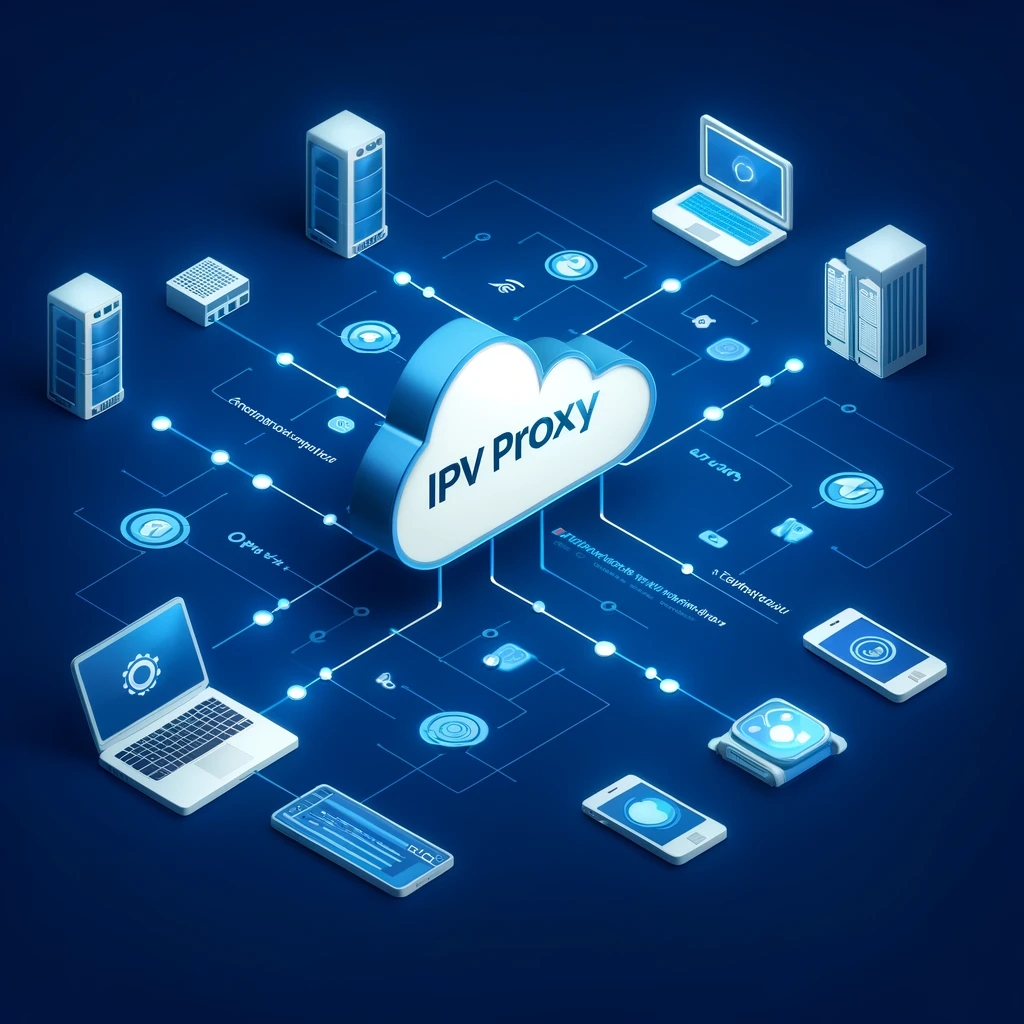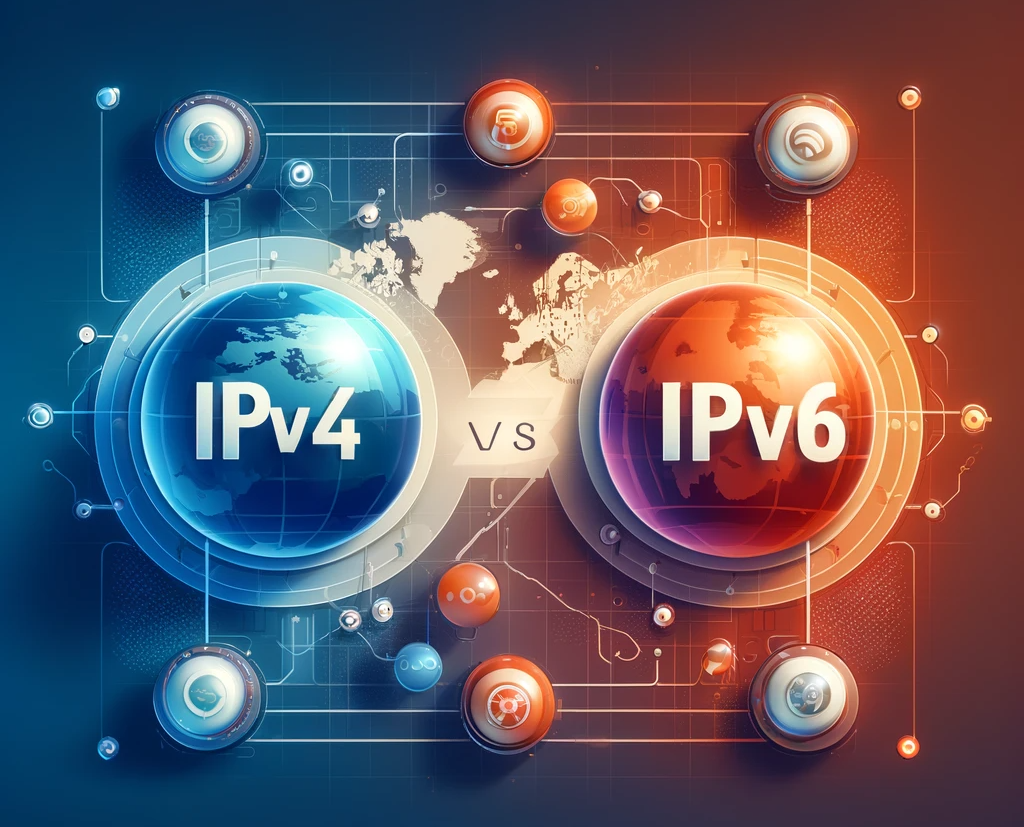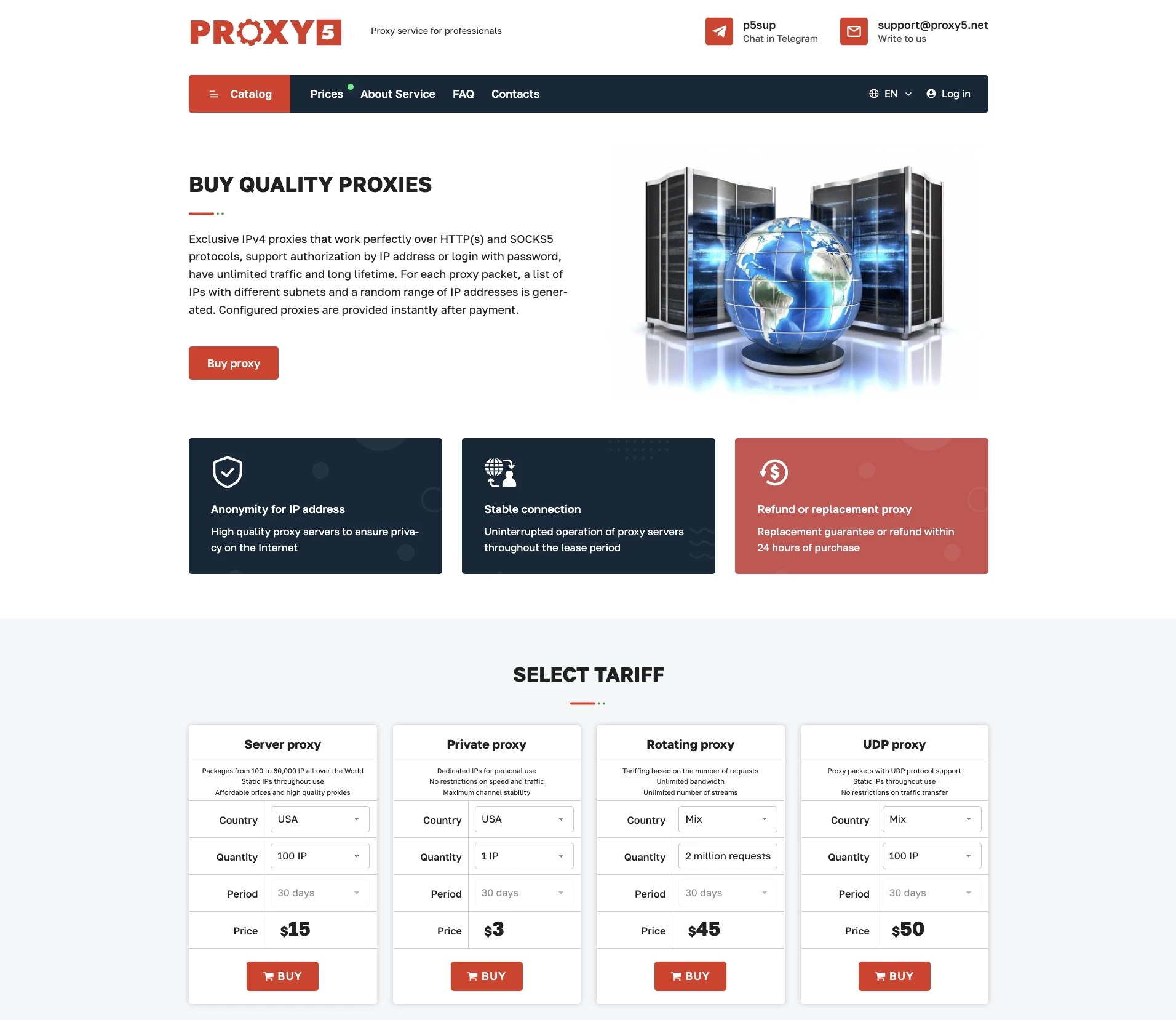What Are IPv4 Proxies: Why Designers Need Them and Where to Buy
In the digital age, the need for privacy, security, and efficient data management has never been greater. This article explores IPv4 proxies, explaining what they are and why they are essential in today’s interconnected world. By understanding the role of IPv4 proxies, designers can better protect their online activities and optimize their internet usage.
What is an IPv4 Proxy?
An IPv4 proxy is a server that acts as an intermediary between a user's device and the internet, utilizing the Internet Protocol version 4 (IPv4) to manage data traffic. The primary function of an IPv4 proxy is to mask the user's IP address, thereby providing anonymity and enhancing security. When a user makes a request to access a website, the request is first directed to the proxy server. The proxy then forwards the request to the target server, making it appear as though the request originated from the proxy rather than the user's device.

IPv4, the fourth version of the Internet Protocol, assigns numerical labels (IP addresses) to each device connected to a network that uses the Internet Protocol for communication. These addresses are 32-bit numbers, typically represented in a dotted-decimal format (e.g., 192.168.1.1). This system allows for approximately 4.3 billion unique addresses.
The proxy server intercepts and processes requests from the user, forwarding them to the appropriate internet resource. When the resource responds, the proxy receives the data and relays it back to the user. This mechanism not only provides a layer of anonymity by hiding the user's original IP address but also offers additional security benefits by filtering potential threats and malicious content.
IPv4 proxies are widely used due to their compatibility with most internet applications and protocols. Despite the gradual shift towards IPv6, IPv4 remains predominant because of its extensive deployment and compatibility with existing infrastructure. The proxy's role in routing traffic efficiently and securely makes it an indispensable tool in the digital age.
In conclusion, IPv4 proxies play a vital role in maintaining online privacy and security by acting as intermediaries that mask users' IP addresses. Understanding how these proxies work is essential for leveraging their benefits in safeguarding internet activities.
Why IPv4 Proxies are Needed and How They are Used
IPv4 proxies serve multiple purposes and are used in various scenarios to improve internet usage, enhance security, and provide access control. Here are some common applications of IPv4 proxies:
- Web Scraping: Businesses use proxies to scrape data from websites without getting blocked.
- Bypassing Geo-Restrictions: Proxies allow users to access content that is restricted in their region by masking their IP addresses.
- Enhanced Privacy: Individuals use proxies to keep their online activities private and protect their personal information.
- Load Balancing: Proxies distribute the network load across multiple servers, improving performance and reliability.
- Content Filtering: Organizations use proxies to restrict access to certain websites, enhancing productivity and security.
- Ad Verification: Advertisers use proxies to verify that their ads are displayed correctly across different regions.
- Anonymous Browsing: Users can browse the internet anonymously, preventing tracking and data collection.
- Improving Connection Speed: By caching frequently accessed resources, proxies can speed up internet connections.
- Monitoring Employee Activity: Businesses use proxies to monitor and control employee internet usage.
- Security Enhancement: Proxies add an extra layer of security by filtering out malicious traffic before it reaches the internal network.
IPv4 proxies are indispensable tools for enhancing internet security, privacy, and efficiency. Their wide range of applications makes them essential for both individual users and businesses. By understanding the benefits and uses of IPv4 proxies, one can leverage their full potential to improve online activities and protect sensitive information. Whether for web scraping, bypassing geo-restrictions, or ensuring anonymous browsing, IPv4 proxies offer a reliable solution for various internet needs.
Comparing IPv4 and IPv6 Proxy Protocols
In the realm of internet proxies, understanding the differences between IPv4 and IPv6 protocols is crucial for making informed decisions about network configuration and performance. This article compares these two protocols, highlighting their key differences and technical characteristics.

IPv4 Proxy
IPv4 (Internet Protocol version 4) proxies use 32-bit addresses, allowing for approximately 4.3 billion unique IP addresses. This format, represented in decimal as four octets (e.g., 192.168.0.1), has been the backbone of internet addressing for decades. IPv4 is widely supported and compatible with almost all internet-connected devices and services. However, the limited number of addresses has led to issues such as address exhaustion and the need for techniques like Network Address Translation (NAT) to manage the limited address space.
IPv4 proxies facilitate network traffic by masking the user's IP address with a different IPv4 address, providing anonymity and security. Despite its limitations, IPv4 remains extensively used due to its established infrastructure and compatibility with existing systems.
IPv6 Proxy
IPv6 (Internet Protocol version 6) proxies, on the other hand, use 128-bit addresses, which significantly expands the address space to approximately 340 undecillion unique IP addresses. This enormous address space eliminates the need for NAT and allows for more straightforward and efficient routing. IPv6 addresses are represented as eight groups of hexadecimal numbers separated by colons (e.g., 2001:0db8:85a3:0000:0000:8a2e:0370:7334).
IPv6 proxies offer several advantages over IPv4, including improved routing efficiency, enhanced security features, and better support for new internet services. The expanded address space ensures that every device can have a unique IP address, simplifying network configuration and improving overall internet performance.
While IPv4 proxies are still widely used due to their established presence and compatibility, IPv6 proxies represent the future of internet addressing with their vast address space and improved technical features. As the internet continues to grow, transitioning to IPv6 proxies will become increasingly important for maintaining efficient and secure network operations. Understanding the differences between these protocols helps in choosing the right proxy solution for current and future networking needs.
Where to Buy IPv4 Proxies
Certain websites, such as social networks and classified ad platforms, operate exclusively with IPv4. This makes IPv4 proxies a preferred choice for many professionals. It's crucial to buy high-quality proxies rather than relying on free ones.
Free proxies often come with significant drawbacks, including slow internet speeds due to shared bandwidth, frequent connectivity issues, and the risk of data theft.
Purchasing high-quality IPv4 proxies from a reputable provider like Proxy5.net offers numerous advantages:
- High Speed: Ensuring fast connections suitable for both work and streaming high-definition videos.
- Reliability: Minimal disruptions with immediate proxy replacements if needed.
- Security: Ensuring user data remains anonymous.
- Unrestricted Access: Bypassing blocked resources without limitations.

IPv4 proxies from this proxy service are based on the fourth version of the Internet Protocol, which is compatible with all existing websites and applications. These proxies support HTTP(s) and SOCKS4/5 protocols, allowing users to choose the appropriate connection method. The proxies provide high speed and unlimited traffic, with options for IP-based access or authentication via login and password. Each proxy package includes a unique list of IP addresses from various subnets, ensuring diverse and non-sequential IP ranges.















